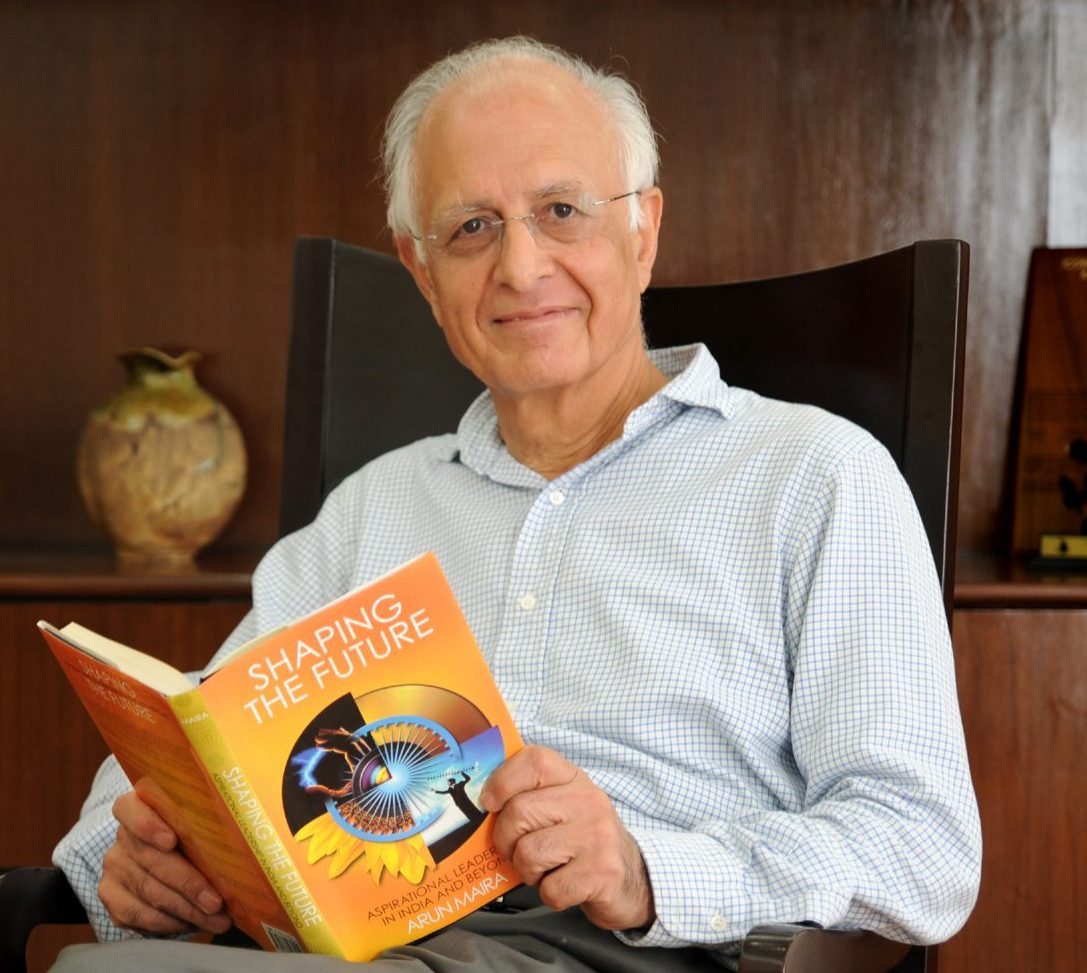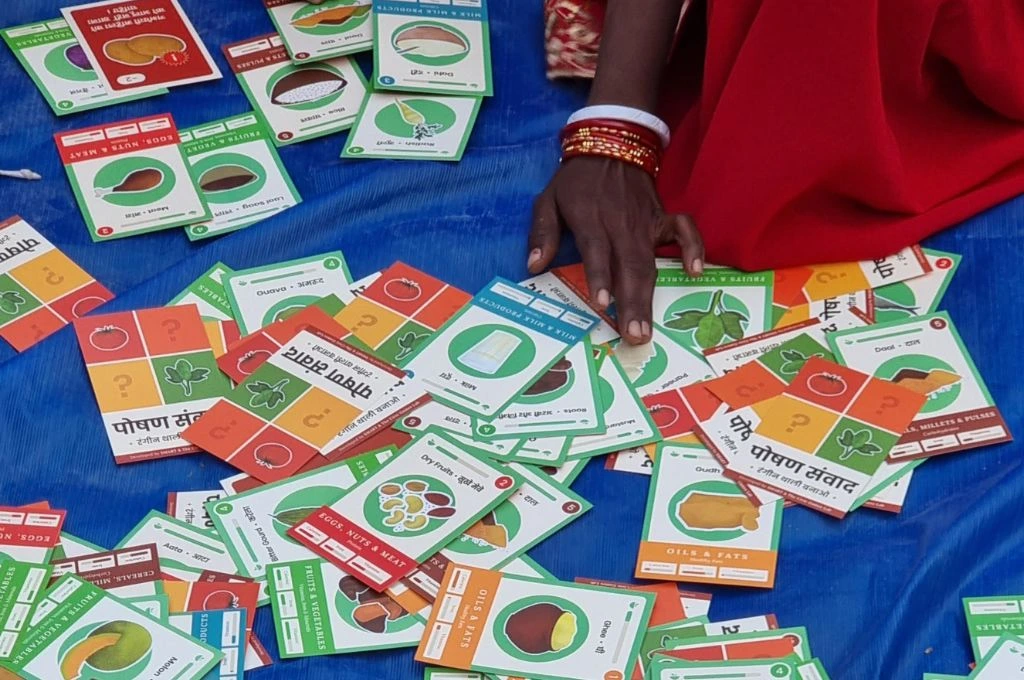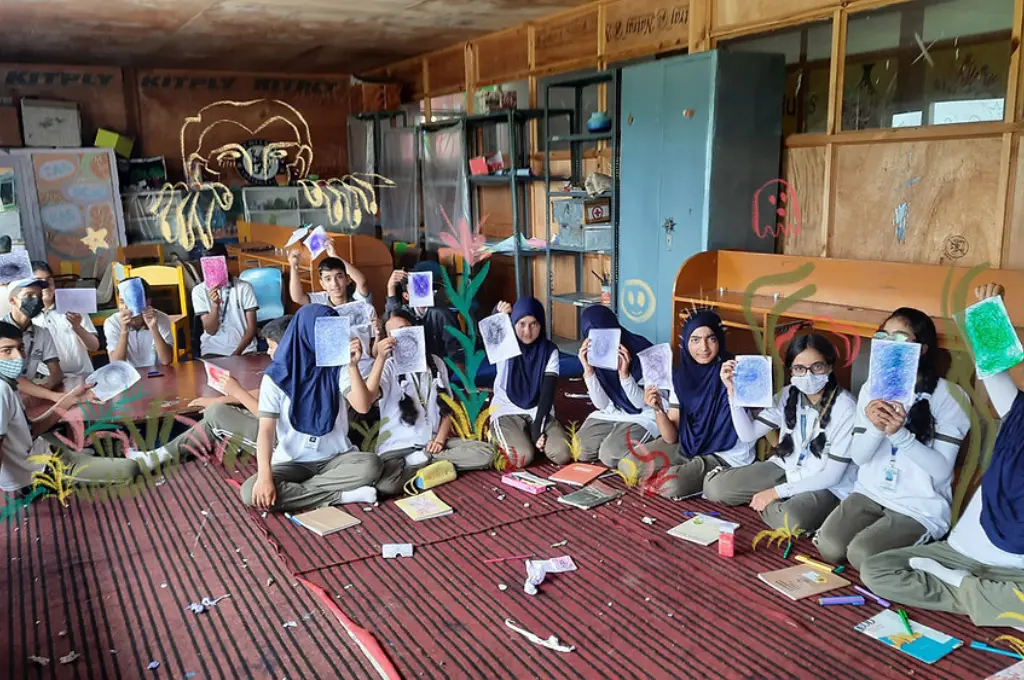Independent India is at a turning point. Will it stay on the path to the destiny it set out for at the midnight hour of August 15, 1947? Will it provide poorna swaraj—full freedom (political, social, and economic)—to all its citizens? Or it will be a nation where some citizens are more equal than others: the rich more equal than the poor; Hindus more equal than Muslims; upper castes more equal than the rest.
We must rediscover who we are, and agree on who we want to be. The Indian economy is in a crisis. The people know it, but its’ leaders deny it. They try to bury their heads in sands of statistics, hoping the storm will pass. They believe a higher GDP will produce good lives for its citizens, and try to convince them that India is on the right path because its economy is growing faster than that of other nations.
Reforming a complex, living system
A democratic nation is a complex and self-adaptive system, composed of economic systems, social systems, and natural systems. Most contemporary challenges, such as climate change and the precarity of livelihoods, are a result of the disruption and misalignment of these systems. The concept of a circular economy may offer a solution. It is being promoted to sustain the environment and shows how materials and energy flow through production systems without waste. Resources are reused, recycled, and kept in circulation.

The same principle can be applied to the financial and wealth economy, where financial wealth created should circulate back to the people who help create the wealth, and not just accumulate at the top. Just as solid waste like plastics accumulate in our lakes and oceans, choking the environmental systems, today wealth and financial capital accumulates with investors and financial institutions. Too little flows back to the producers, which harms the economy and society. It widens the gap of inequality, and the global shift to financial capitalism in the past 30 years has only accelerated this issue.
This increasing misalignment between economic systems, ecological systems, and democratic governance systems can be corrected if financial power, along with political power, stays with common citizens.
Today, the economy is lopsided. The notion that financial wealth accumulated by a few people will ‘trickle down’ to those whose work produced the wealth does not seem to have worked. Those with more capital have the political power to influence policies and accumulate even more capital. Whereas, in democracies, political power must remain in the hands of the people. The number of millionaires at the top of the Indian economy has been growing in the past decade, even as millions scramble for employment to earn adequate incomes. Too much for some, too little for others.
Building enterprises for the people
As we continue this journey to India’s Tryst with Destiny, and a more inclusive economy, there is a need to increase accumulation of wealth at the bottom. We require enterprises run by the people as well as owned by the people if we want to reduce income and wealth disparities, and remain democratic.
Climate change has challenged the tenets of economics that have dominated public policy for the past 50 years.
The concept of ‘businesses by the people’ is not new. They operate in many countries including India, such as the Amul Dairy Cooperative, the Self-Employed Women’s Association (SEWA) group of women’s enterprises, and weavers’ and farmers’ cooperatives. The Bangladesh Rural Advancement Committee (BRAC) and the Grameen Bank have nurtured thousands of such enterprises, mostly owned and run by women, in Bangladesh.

Climate change has challenged the tenets of economics that have dominated public policy for the past 50 years. The paradigm shift necessary in the governance of societies will not be easy. The shifts in social, economic, and political power towards those who have less will be resisted by those who have more in the present paradigm. The solution, perhaps, lies in moving to circular systems and drawing on proven models from the past—such as community-owned enterprises, cooperatives, and local self-reliance—which delivered resilience and equity long before the current growth-obsessed model took hold of our imagination of development.

Pathways to economic resilience and inclusivity
Here are seven radical ideas emerging as pathways to build a more resilient economy and a more just society.
1. Stop obsessing with economic growth
The obsession with GDP as the supreme goal of progress has been challenged often, but its challengers were dismissed as the lunatic fringe. Now, Nobel laureates in economics such as Joseph Stiglitz, Amartya Sen, Abhijit Banerjee, and Esther Duflo are calling upon their peers to rethink the fundamentals of economics, especially the purpose of GDP. Goals for human progress must be reset. What should we aspire for? And how will we measure if we are getting there?
2. ‘Citizen’ welfare, instead of ‘consumer’ welfare, must be the objective of progress
In economies, human beings are consumers and producers. In societies, they are citizens. Citizens have a broader set of needs than consumers. Citizens’ needs cannot be fulfilled by merely enabling them to consume more goods and services. They value justice, dignity, and societal harmony. Economists’ evaluations of the benefits of free trade, and competition policy, which are based on consumer welfare alone, fail to account for the negative impacts on what citizens value.
3. The ‘market’ is not the best solution
Money is a convenient currency for managing markets and for conducting transactions. Whenever goods and services are left to markets, the dice are loaded against those who do not have money to obtain what they need. Moreover, by a process of cumulative causation, those who have money and power can acquire even more in markets. The ‘marketisation’ of economies has contributed to the increasing inequalities in wealth over the last 50 years, which economist Thomas Piketty and others have documented.
4. Government is good
US president Ronald Reagan’s dictum, “Government is not the solution, it is the problem,” was upended by the 2008 financial crisis and COVID-19. When the economy was in trouble, even capitalist corporations that wanted governments out of the way so they could do their business easily were lining up for government bailouts.
5. Intellectual property belongs to the public
We are living in an era of knowledge. Just as those who owned more land used to have more power, now those who own knowledge have more power and wealth than the rest. Intellectual property monopolies are producing enormous wealth for their owners, though many were developed on the back of large public investments. Moreover, powerful technologies can be used for benign or malign purposes. It is imperative to evolve new institutions for public ownership of technologies and for the regulation of their use.
6. Collaboration is essential for progress
Faith in ‘Darwinian competition’, with the survival of only the fittest, underlies many pathologies of modern societies and economies. From the time they step into school, children are taught to compete. Companies must improve their competitive abilities; nations too. Blind faith in competition misses the reality that human capabilities have advanced more than others by evolving institutions for collective action. Further progress to achieve the Sustainable Development Goals (SDGs), for example, will require collaboration among scientists in different disciplines and among diverse stakeholders, as well as among sovereign countries. Improvement in abilities to share and govern common resources has become essential for human survival in the 21st century.
7. Shift power from central to local
The top-down institutional structure of governance has failed because it is based on an un-systemic view of global problems. There are 17 SDGs. They are interlinked with one another. None can be solved on their own. Moreover, these problems are not manifested in the same way everywhere. Problems of environment and climate are not the same in Alaska and Barbados, nor in Uttarakhand and Kerala. Problems of livelihoods in the informal settlements of New York are quite different from those in similar neighbourhoods of rural Bihar. Therefore, all problems must be solved locally.
Local systems solutions, cooperatively developed by communities in their own villages and towns, are the way to solve global systemic problems.
Forecasts estimate that the SDGs will only be achieved by 2087 if we persist with the present top-down and siloed approach of problem-solving, whereas the aim was to achieve them by 2030. Everywhere, at least seven of the 17 problems under the SDGs must be solved urgently. Let’s do some mathematics. There can be as many as 94 million different combinations of seven problems from a set of 17. Clearly, one-size solutions developed by global climate scientists or global health experts will not fit local realities everywhere.
Systems science reveals that local systems solutions, cooperatively developed by communities in their own villages and towns, are the way to solve global systemic problems of climate change and inequitable economic growth. This was the Gandhian solution for India’s economic and social progress, which is being set aside since the 1950s in favour of Western solutions for development.
Changing the paradigm
Change in the economic paradigm will not come about until those with power in the present paradigm listen to the ideas of those outside it. Don’t shut them out in your deliberations; listen to their aspirations and their ideas. The 10 percent in the powerful G7 countries must listen to the 90 percent outside it. The 1 percent at the top of economic institutions and academic establishments must listen to the 99 percent outside them. Wealthy Indians in their luxurious, gated communities must listen to the poor who live outside those walls.
The redesign of economies, businesses, and our lives must begin with questions about purpose. What is the purpose of economic growth? What is the purpose of businesses and other institutions? And the questions must go deeper. What is the purpose of our lives? What needs, and whose needs, do institutions, and each of us, fulfil through our existence?
—
Know more
- Read an excerpt from Reimagining India’s Economy: The Road to a More Equitable Society by Arun Maira.
- Learn how businesses and nonprofits can tackle inequality.
- Learn more about the status of inequality in India.




